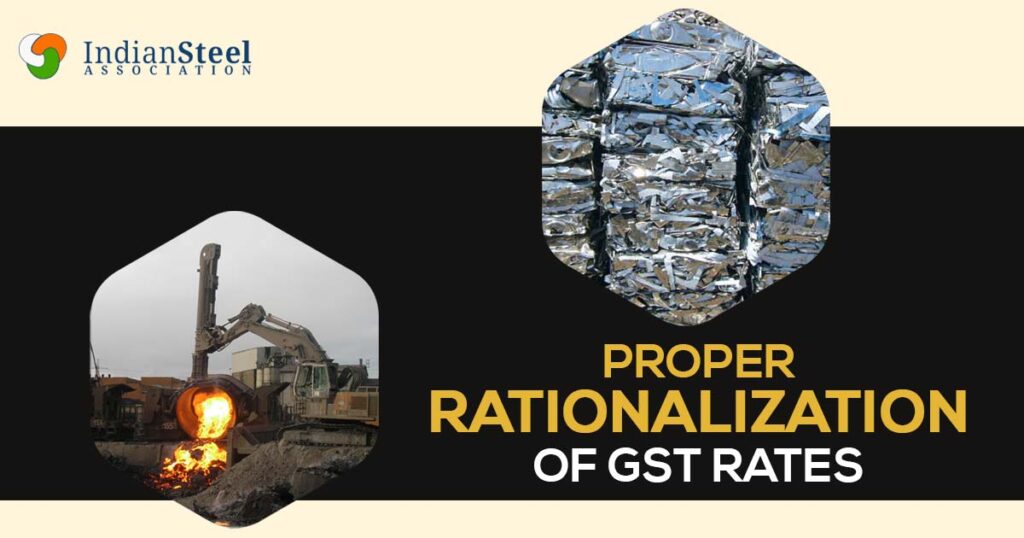
A letter has been written to the Finance Ministry by the Indian Steel Association (ISA), an industry body of major steel mills that comprises Tata Steel, JSW, SAIL, JSPL, etc for the GST rate rationalization on some steel-making raw materials like scrap and also by-products like slag.
The goal is to reduce rates in both categories from the current 18% to 5% in order to reduce supply chain interruptions and prevent tax evasion, legal action, and penalties.
A Copy of it was sent to the Steel Ministry
The Association said in its letter that the rationalization of the GST rate on steel scrap from 18% to 5% will stop tax evasion. Additionally, there will be no effect on government revenue from the rate drop. According to ISA’s letter to Revenue Secretary Sanjay Malhotra, scrap utilized in the manufacture of steel products is eligible for the GST input tax credit.
On scrap, the higher GST rates have led to an increase in instances of evasion, particularly in a sector that is primarily unorganized.
Because there is no system in place to verify the validity of the input tax credit claimed by scrap dealers, steel manufacturers find it challenging to present proof of purchase. There is a limitation on the entry of goods provided by such dealers into the manufacturing premises of the producers when tax authorities are conducting ongoing investigations. According to the letter, this causes “disruption of the value chain.”
A new GST rule that would limit or forbid buyers from claiming input tax credits on GST e-invoices produced by non-compliant suppliers might also result in “financial hardship and delay in availing legitimate input tax credit for genuine buyers,” as mentioned in the letter.
“Shifting the liability of GST from forward charge mechanism to reverse charge mechanism on supply of scrap, and reduction of GST rate on steel slag, presently at 18 per cent, to be brought down to 5 per cent to have parity with blast furnace slag or fly ash slag,” it stated.
There is an existing 5% GST rate for the blast furnace slag and fly ash.
Type of Slags
There are two forms of slags in the steelmaking process: blast furnace slag, which is produced when iron ore and coke are treated to produce hot metal, and slag ash, which is produced as a byproduct during the conversion of hot metal to steel.
Blast furnace slag is used in the production of cement. Steel slag (also known as LD slag) is being tested as an alternative for use in fields such as cement production, highways, marine ecology, soil conditioners, and so on. According to the letter, the high GST rate on LD slag (at 18%) is discouraging its broad usage.









